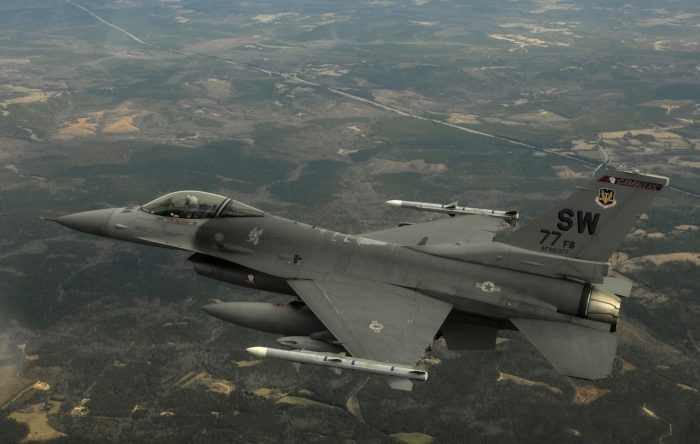American fighter jets scrambled on 24 September to identify and intercept four Russian military aircraft flying near Alaska, CBS News reported, citing the North American Aerospace Defense Command (NORAD).
Two Russian Tu-95 long-range strategic bombers and two Su-35 fighters flew in Alaska’s Air Defense Identification Zone (ADIZ), which comprises international airspace adjacent to the sovereign airspace of the US and Canada, according to military officials.
NORAD deployed an E-3 early warning and control aircraft, four F-16 fighters, and four KC-135 refueling aircraft “for positive identification and interception” of the Russian aviation, the command stated.
“Russian military activity in the ADIZ is common and not considered a threat, but it was the latest in a series of flights by Russian aircraft seen by many as testing the preparedness of US and allied NATO nations,” NORAD reported.
The Russian aircraft entered Alaska’s air defense identification zone approximately one month after a similar incident when the US also scrambled fighters for interception. In late August, NORAD reported detecting and tracking a Russian military reconnaissance aircraft in the ADIZ after intercepting the same reconnaissance plane three times over the region in preceding days.
In September 2024, NORAD released video of a Russian aircraft flying “just feet away” from NORAD aviation off Alaska’s coast. An American general said at the time that the aircraft crew’s behavior was “unsafe, unprofessional and endangered everyone.”
None of these situations have resulted in Russian military aircraft violating US or Canadian sovereign airspace.
Airspace violations escalate across Europe
European countries have recorded airspace violations since late August, including flights by unidentified drones over local airports.
The situation intensified on the night of 10 September, when Russia again attacked Ukraine with drones and missiles. Several Ukrainian drones entered Polish airspace, where aircraft weapons were used against them for the first time. Polish Prime Minister Donald Tusk said that Poland’s airspace had been violated at least 19 times.
On 13 September, F-16 fighters in Romania detected a drone in national airspace and tracked its movement to approximately 20 kilometers southwest of the Kiliya-Veche commune until it disappeared from radars.
Three Russian MiG-31 fighters entered Estonian airspace on 19 September and remained there for 12 minutes. The same day, Poland’s Border Guard reported that two Russian fighters violated the security zone of the Petrobaltic drilling platform in the Baltic Sea.
NATO launched the “Eastern Guardian” initiative to strengthen defense of Europe’s eastern flank, including the deployment of ground forces in eight countries. Poland and Estonia initiated consultations under NATO Article 4, while European Defense Commissioner Andrius Kubilius convened talks on creating a “drone wall” along the EU’s eastern border.
On the evening of 22 September, Copenhagen Airport suspended operations due to unidentified drone activity. Danish Prime Minister Mette Frederiksen called the drone flights “the most serious attack on Denmark’s critical infrastructure.”




